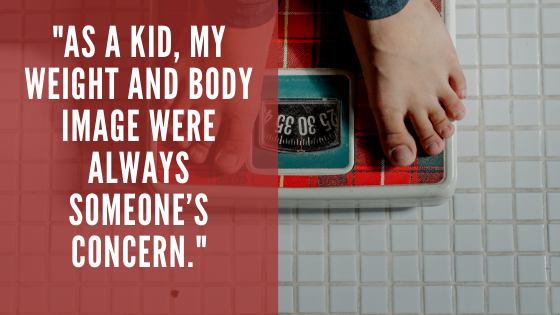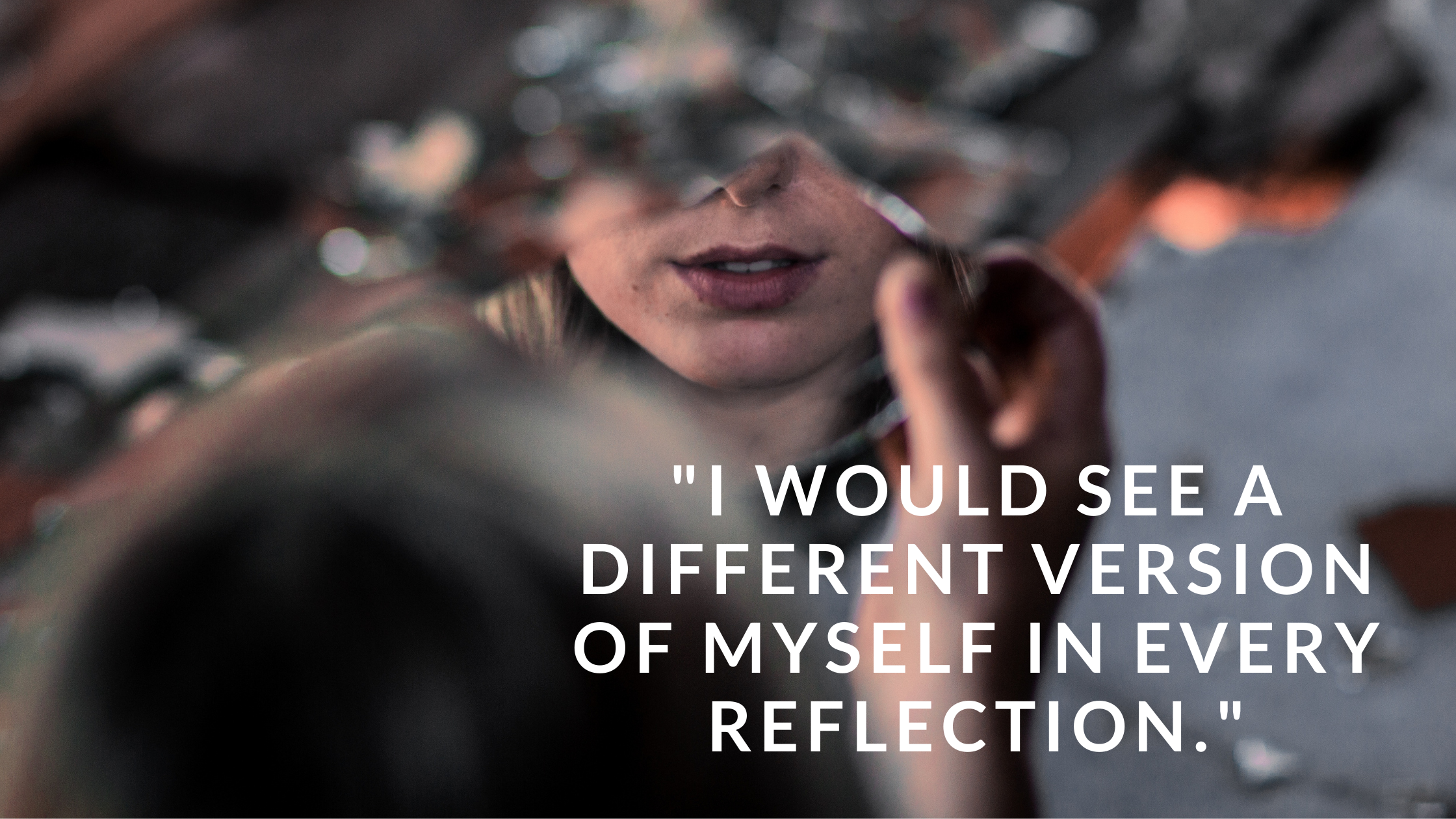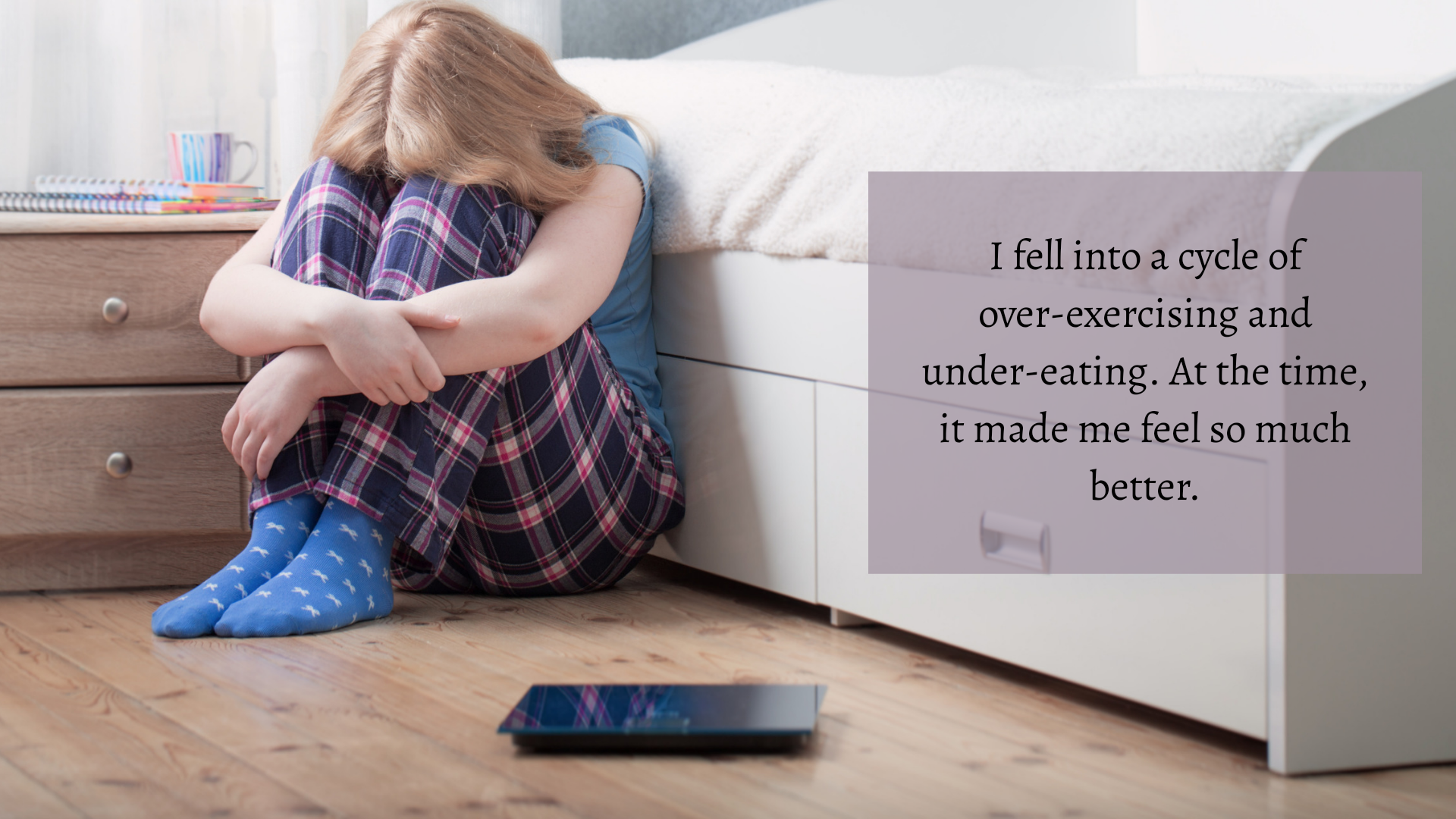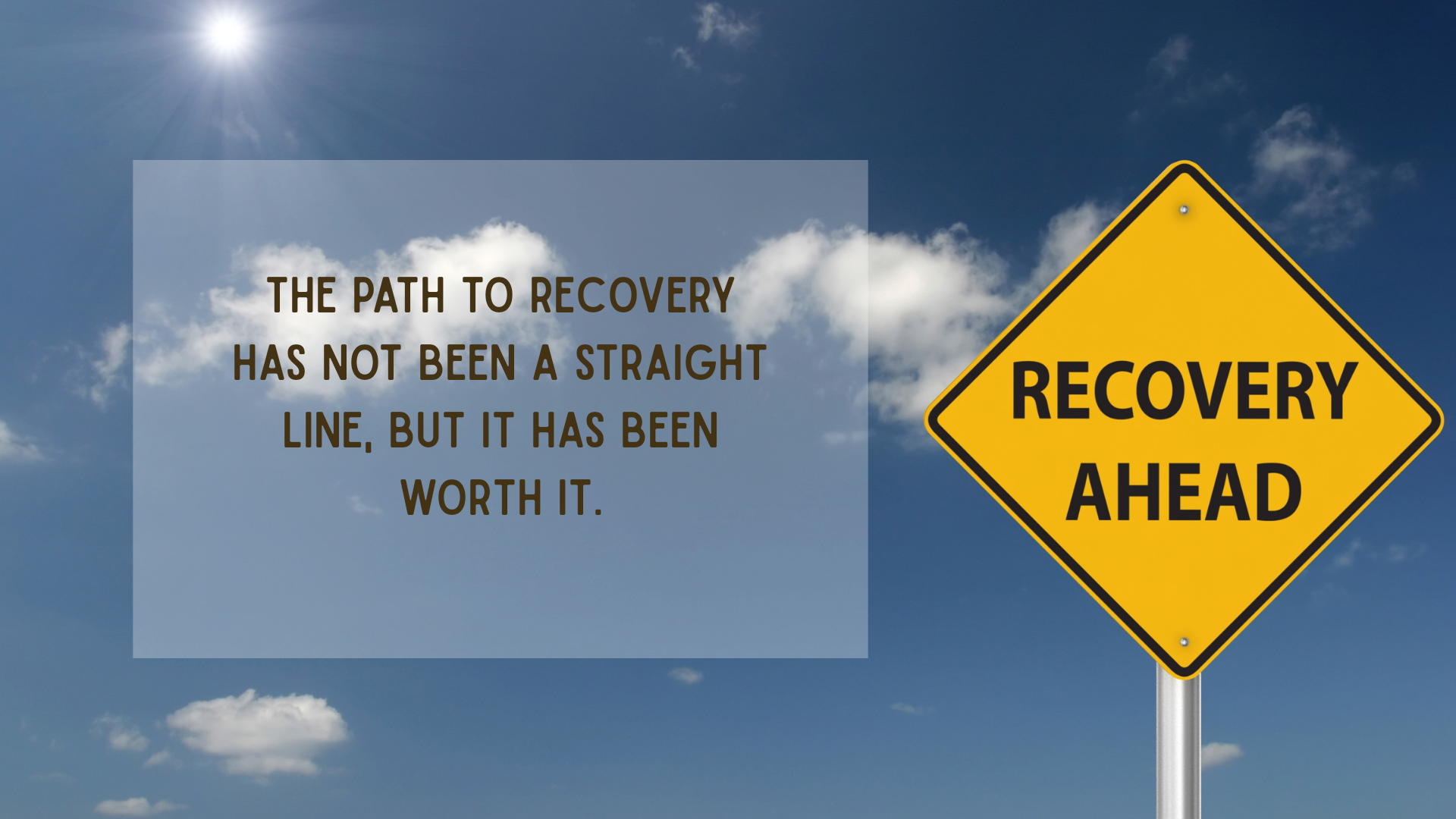It was summer 2019 and I had just graduated high school. I was elated because I had reached such an important milestone. I spent most of the day taking photos, thinking nothing of how I looked in them. When I got home from celebrating, I went through all the photos and immediately began to pick out all the flaws in myself. The more I stared, the more imperfections I saw, and soon every bit of happiness from the day had faded away.

As a kid, my weight and body image were always someone’s concern. My mother used to take my brother and me to the doctor’s at the same time for our physical exams and never once did I hear the doctor talk to my brother about his weight the same way she did to me. It was ingrained into my head that I always had to be watching my weight.
Meanwhile, at home, I grew up watching my mother and my aunts obsessing about being thin; I lived surrounded by all the dietary supplements they tried and the endless amounts of shapewear they purchased. The idea that looking pretty meant I had to be thin was something that taunted me as a slightly overweight kid. This led me to purchase my first piece of shapewear with my Christmas money when I was 12.
The toxic dieting norms in Latino culture often create detrimental body issues in children, and this holds true in my upbringing. According to a 2010 study by the Harvard School of Public Health, many Latina mothers perceive their children to be at a healthy weight when, in reality, they are overweight or obese. This leads to unhealthy habits such as unrestricted eating, which causes weight gain in Latino children. Many mothers in the study explained how, in their native country, their own mothers taught them that kids had to eat hearty amounts of food in order to grow up strong and healthy. Due to this, many Latina mothers often equate having a chubby kid with being a good parent.
My mother fed my siblings and me as much healthy food as she could, but there were virtually no restrictions on how much candy or chips I could eat and that created a sense of unhealthy freedom in my youth. This caused me to gain weight, which added another layer of insecurity growing up. So with one hand, I was being offered excessive amounts of food, and with the other, I was being shown dieting supplements and shapewear.
In elementary school, I was always the chubbier kid. One time in fifth grade when we were all standing in a line outside the classroom after recess, a group of girls next to me were discussing their weight and how they were happy with it. One of them turned to me and asked me directly how much I weighed. I felt so uncomfortable at the moment because it was very evident that they were all thinner than me. Because of that, I always thought that they were “pretty.”
I began to feel insecure about everything that I wore; everything made me feel disgusting. According to the National Eating Disorders Association, 40-60% of elementary school girls are concerned about their weight or becoming too fat. This concern often lasts throughout their entire life.
Upon entering middle school, the insecurities and body issues only got worse. I was 13, and I still had some baby fat. I would wear cardigans in an attempt to hide the way my body was changing. I also wore biker shorts under my uniform every single day to ease my awkwardness when it came to changing into my gym clothes, a habit that lasted for years. I always felt like I needed some sort of tight clothing underneath to hide the fat.
I began to get a curvier figure when I was 14; it made me feel uncomfortable because I didn’t see other girls with my body type. It was then that I became obsessed with my body image–I didn’t want that different body type. I didn’t want to stand out like that.

The obsession with my weight became inescapable throughout high school. When I wore looser clothing I felt huge, and when I wore tight clothes I felt like I was pouring out of them. The mirror became my enemy throughout those four years. I would see a different version of myself in every reflection; I could no longer recognize who I was looking at anymore.
Around my junior year of high school, my best friend of four years suddenly stopped talking to me, and it sent me into depression. I felt so angry and sad that I took it out on myself. I began to go to the gym to work out the anger. Soon, I fell into a cycle of over-exercising and under-eating. At the time, it made me feel so much better.

That unhealthy cycle continued up until my freshman year of college, which is when I reached rock bottom. My regular depression got worse as I experienced heartbreak-induced depression from deeply unrequited love. I tried to distract myself from that by focusing on my physical appearance.
I began to track every single calorie I consumed. That fixation led me to only eating 500-600 calories some days. I went to the gym every single day, although most days I wasn’t eating enough calories to burn. I constantly felt lethargic, weak and moody. I would walk around campus with little to no energy, and I struggled to concentrate. Looking back, I don’t know how I didn’t collapse.
Meanwhile, my family and friends were noticing that I was losing weight, and they were all congratulating me and telling me how good I looked. That became an additional fuel for me; I liked people noticing my body in a “positive” way for once. Those comments also encouraged me to keep going.
Now, as a 19-year-old college student, I have reexamined my history with my eating disorder. It was during the fall semester of 2019 that I realized that I wasn’t OK. I was rejecting food and craving exercise because it was the only thing that made me feel good; it kept me distracted from the depression I was going through.
Part of this shift came from the support of one of my closest friends, Rosa. She has struggled with body image issues herself, and she also comes from a Latino family where she had similar issues with food as a kid.
She noticed I was a little off both physically and mentally in December of 2019, but I hesitated to tell her anything because I didn’t want to trigger her own issues with eating disorders. However, as the semester progressed and we hung out more each week, she began to notice that I had lost weight and that I looked sad. I couldn’t keep playing off my mood as just stress.
When I finally opened up to her about it in January 2020, she was patient and understanding. She told me about her continuous struggles with her own eating disorder. We understood each other. Rosa began to encourage me to change my unhealthy dieting habits, and she even began to bring me some of her own healthy snacks that we indulged in every week after class. I began to understand how eating did not equate to gaining weight and that it was possible to eat food without feeling guilty afterward.
Time and time again, I feel so sad because of the way I used to think and act. I was hurting myself in a desperate attempt to accept the way I looked. Now I see my 12-year-old sister beginning to have issues with her body image, and it concerns me. She points out the same things in herself that I used to do to myself. I constantly remind her that changes are normal and that food is not her enemy. I see my younger self in her, so I tell her everything I wish someone had told me at that age.
I’ll admit that sometimes I find myself wanting to count all my calories again when I feel like I’ve eaten too much. Some days, I feel like I’m losing control by simply eating, and I have to constantly remind myself that I have to eat. I cannot accomplish much on little energy and I need to focus on school and work. I have to remind myself that I don’t want to hit rock bottom again. Every day is a reminder of how lucky I am to have survived my eating disorder and how I am still alive after all of it. The path to recovery has not been a straight line, but it has been worth it.



